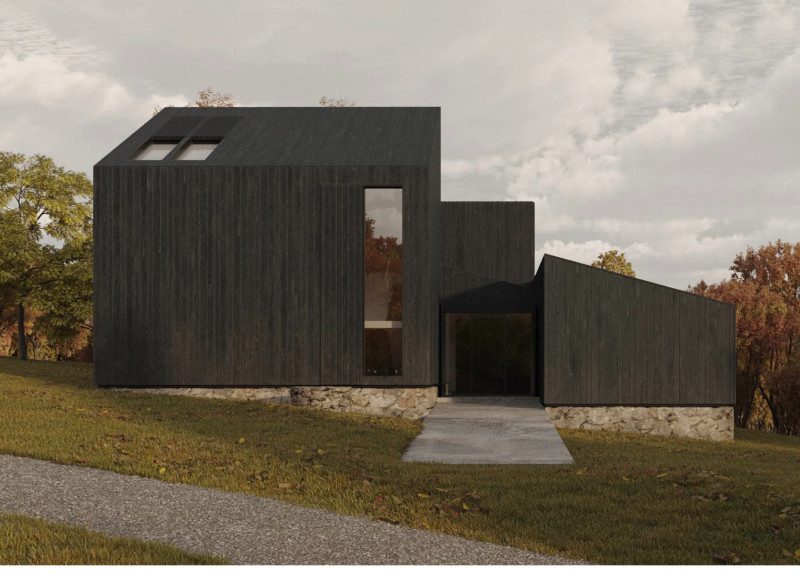5 key facts about this project
Situated along a calm lakeshore in Latvia, the design offers a modern take on traditional wooden houses, intended as a retreat for artists and their families. The main focus is on sustainability and ensuring a connection with the natural surroundings. Through a thoughtful design approach, the space adapts to the evolving environment while honoring its historical roots.
Design Concept
-
The project embraces the idea that the lakeshore can support both change and new architectural styles. The design features a reimagined wooden roof arch, presenting a structure defined by clean, straightforward lines. This form adapts to the gently rolling terrain of the site, creating a relationship between the built forms and the landscape.
Spatial Arrangement
-
The layout of the residence is divided into two parts, allowing for personal privacy while also creating communal areas for interaction. In the center, a shared meeting space serves as a gathering point, facilitating connections among guests while providing the comfort of private living areas. This careful planning meets the needs of artists looking for both solitude and community.
Sustainability Features
-
A key element of the design is its emphasis on environmentally friendly features. Solar panels are placed on the roof to meet the building's energy needs, positioned to capture sunlight throughout the day. Additionally, there is a proposed system for collecting and filtering rainwater for household use. This shows a commitment to managing local resources carefully and sustainably.
Connection to Context
-
The design reflects the site’s history, with walls that rise from old rubble trench foundations. Reused wood from previous structures wraps around the new forms, providing a visual connection to the past. This approach not only celebrates local architectural history but also emphasizes the project's ecological character.
The overall design achieves a minimalist aesthetic that balances individual comfort with community interaction. Features such as sliding wooden shutters allow flexibility within the space, adapting to different needs throughout the day.





















































